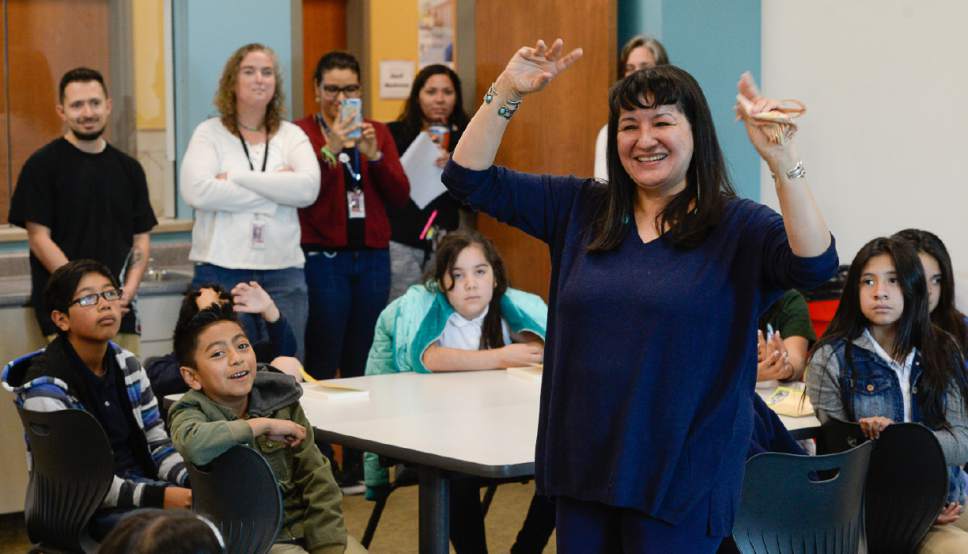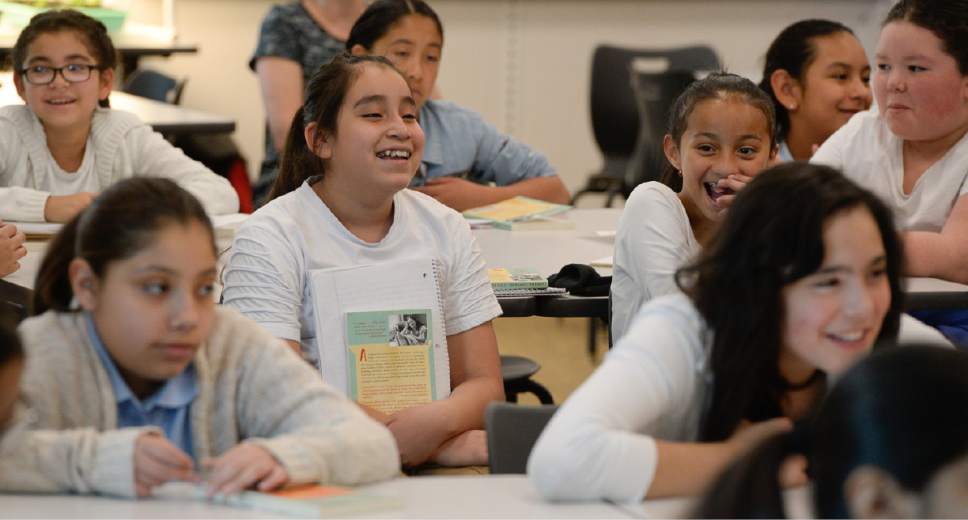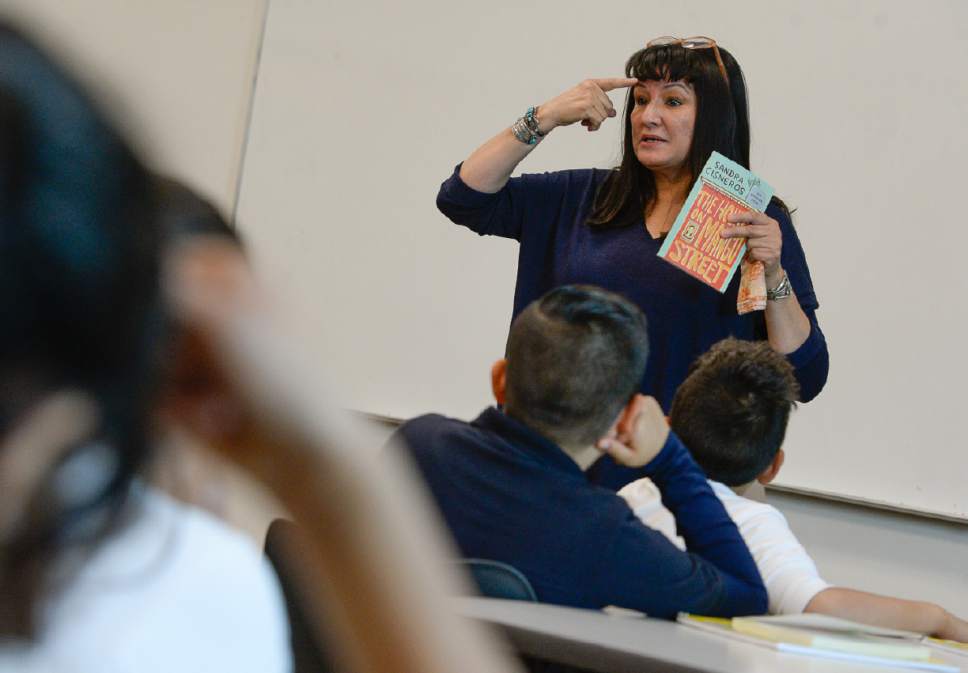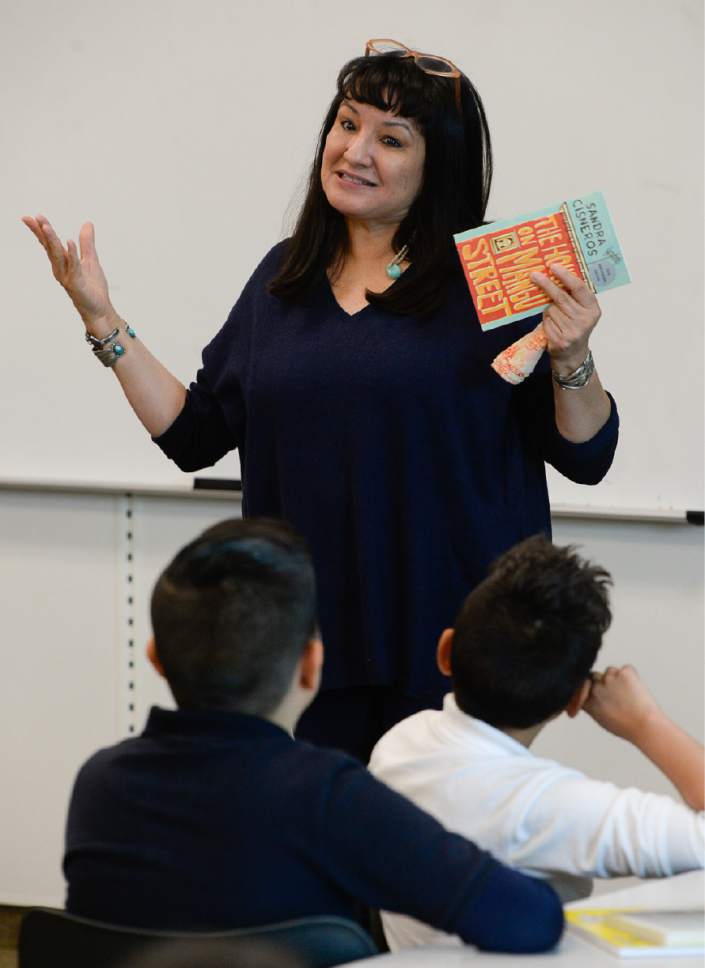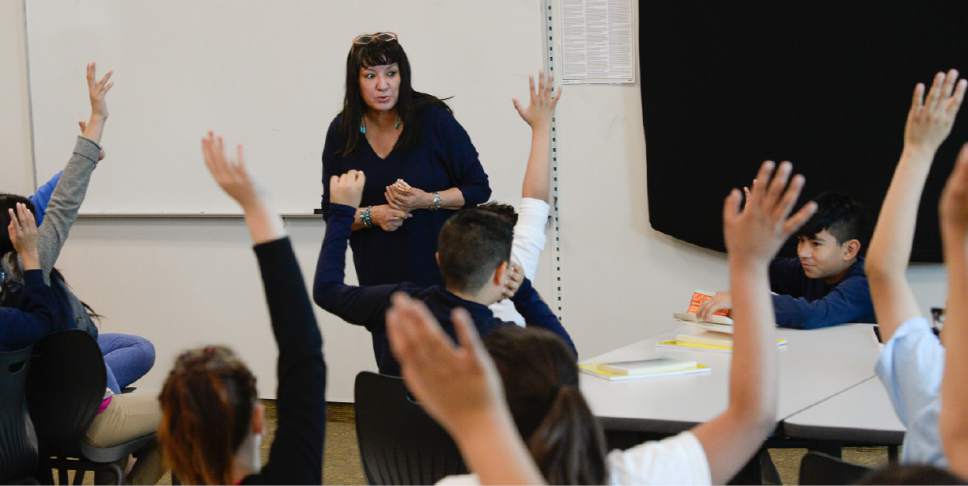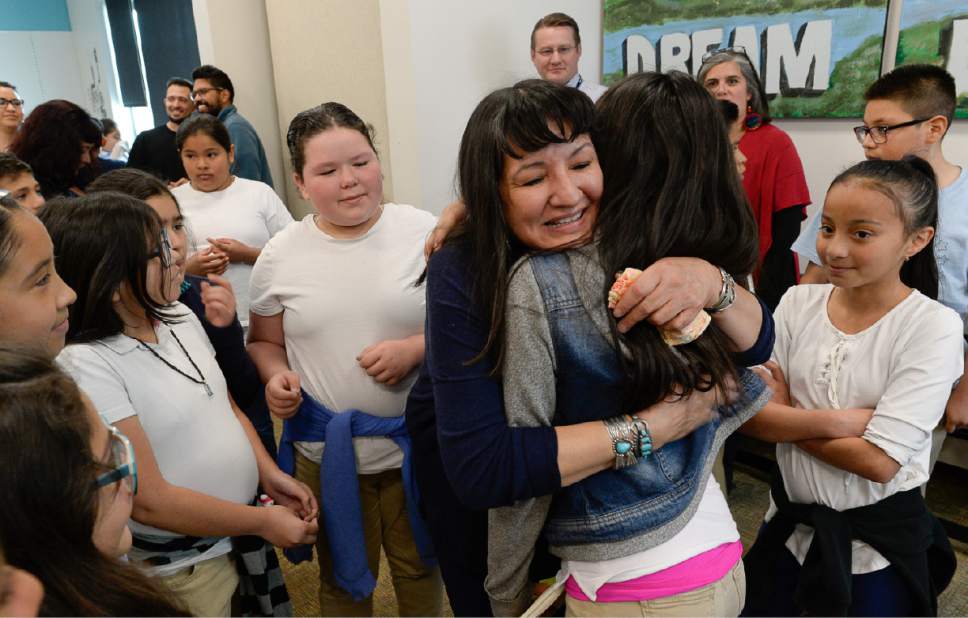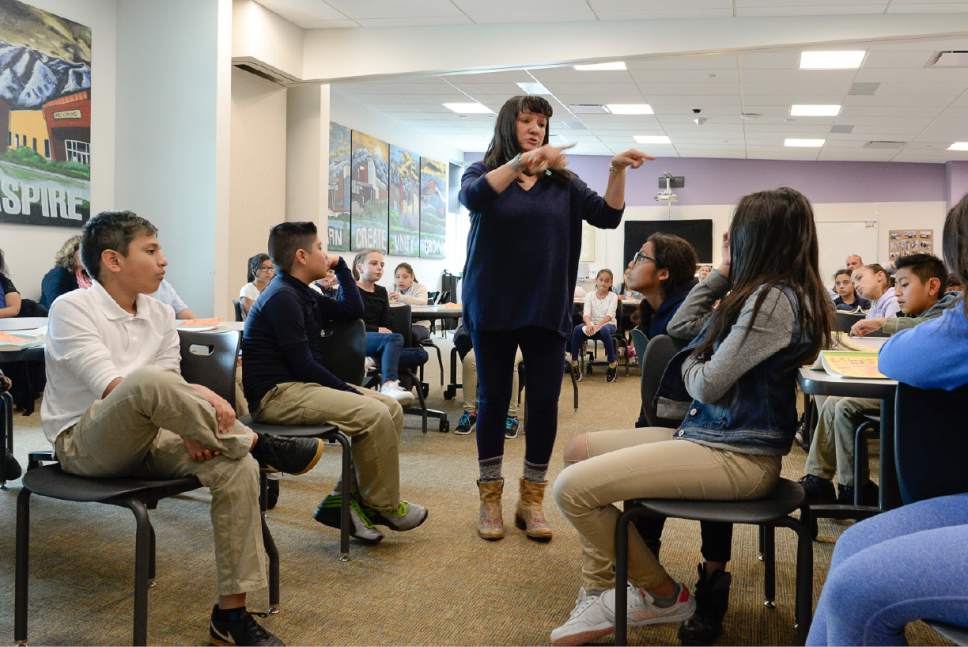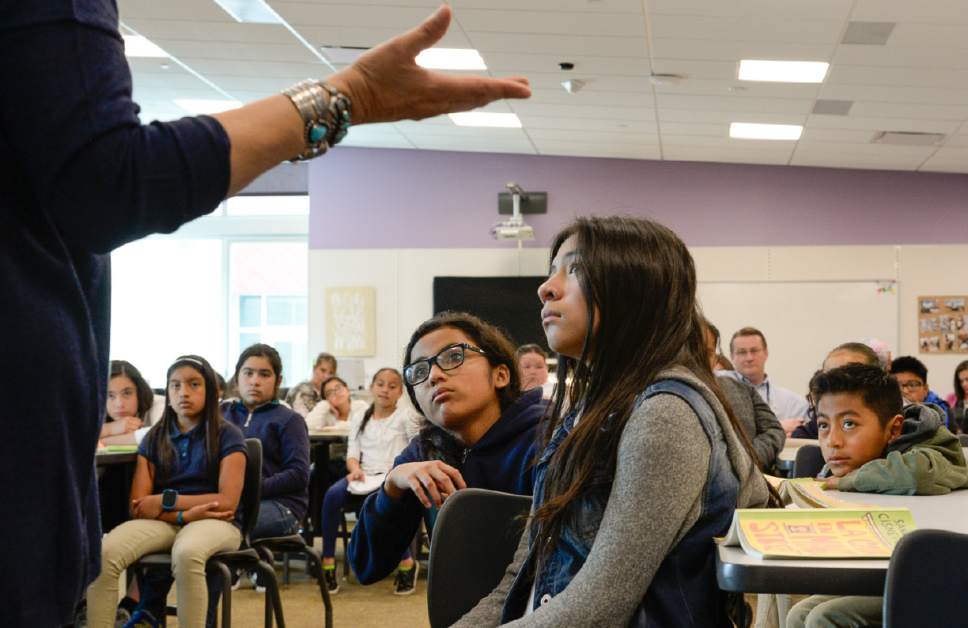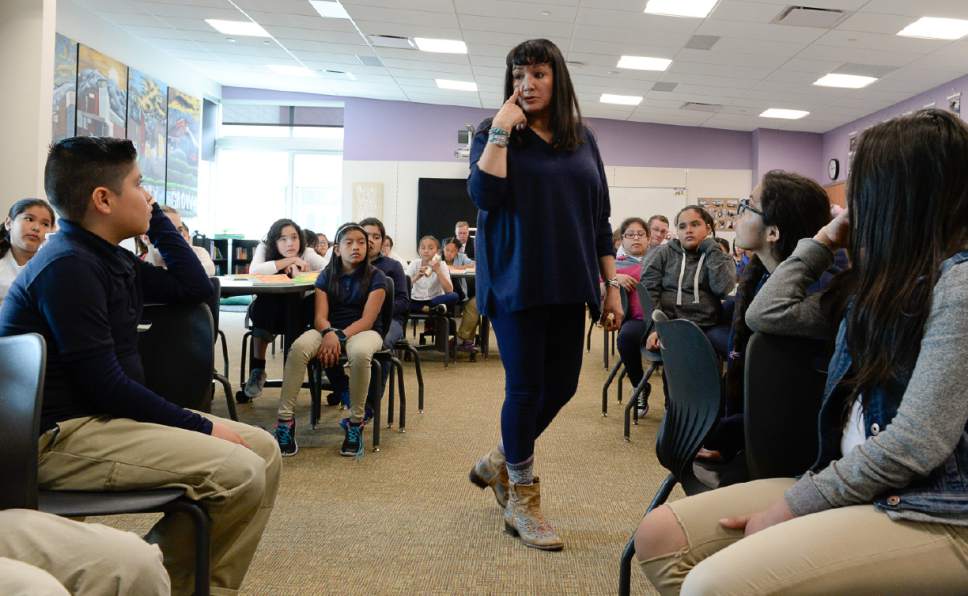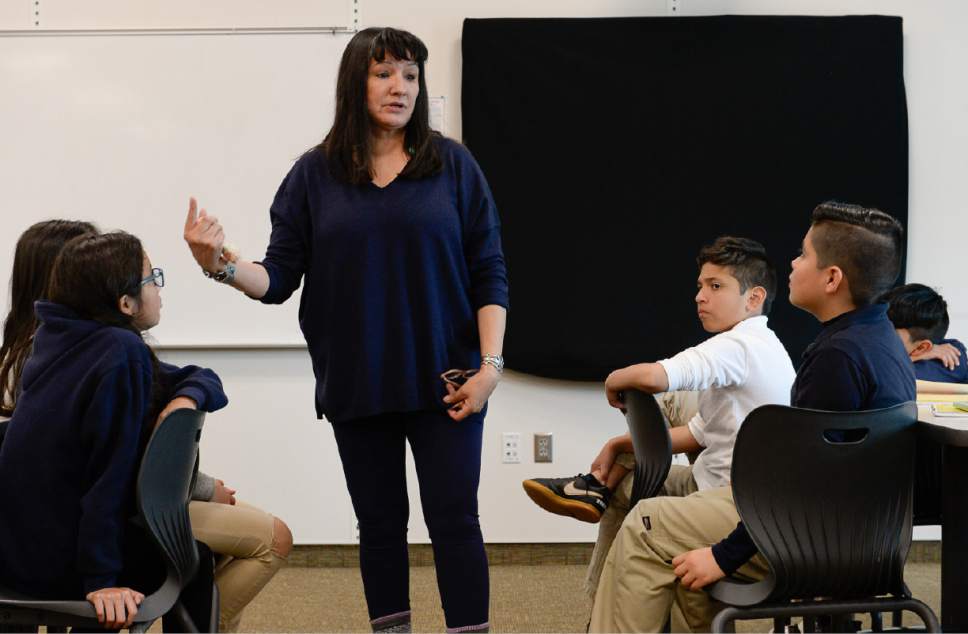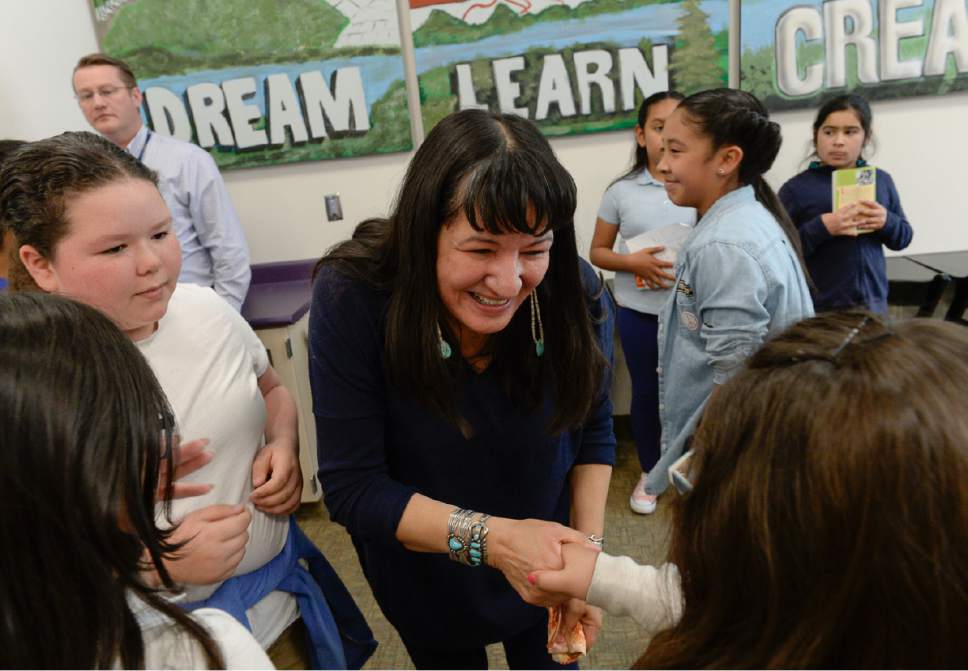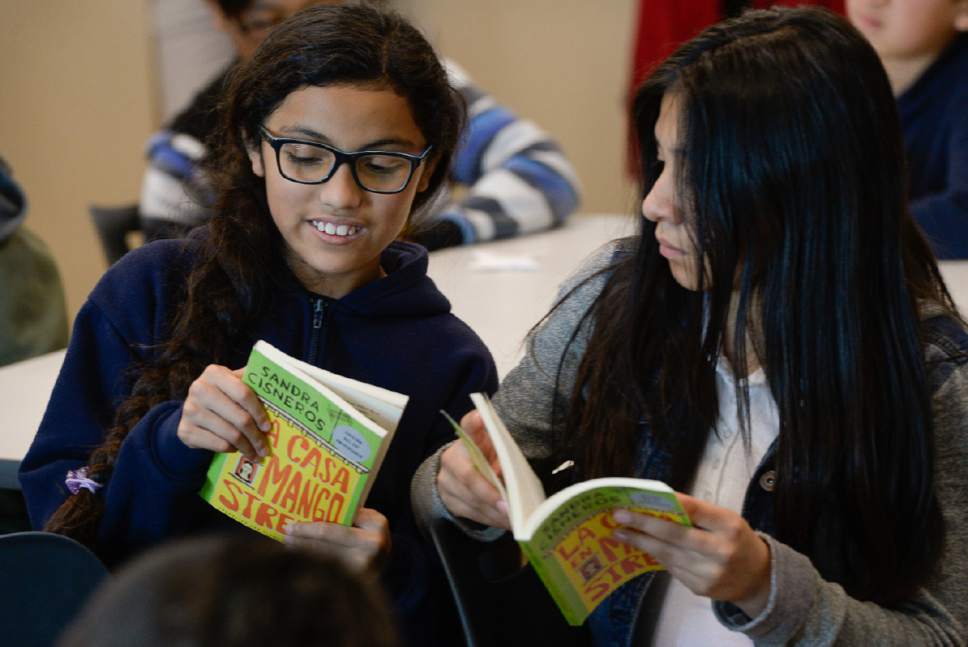This is an archived article that was published on sltrib.com in 2017, and information in the article may be outdated. It is provided only for personal research purposes and may not be reprinted.
Sandra Cisneros — who, as a girl, was so shy that in class pictures she tried to fold her body inward to make herself smaller — was in fifth grade when she first dreamed of having a book with her name on the spine.
That was her big secret dream, growing up the daughter of a hardworking upholsterer in a poor Chicago neighborhood, as the only girl in a family of six noisy boys whose favorite game was making Sandra cry.
At Glendale-Mountain View Community Learning Center on Wednesday morning, Cisneros urged fifth-graders to dream their own big secret dreams, such as writing books or owning a bank.
Cisneros, 62, a poet and novelist known for her groundbreaking stories of Chicana women, was in Utah this week for a University of Utah Tanner Humanities Center reading, which will be broadcast on KUER's "RadioWest" on Thursday at 9 a.m. and 7 p.m.
"You have to start now; you can't wait until you're in high school or when you are in your 20s. You have to make it happen," the writer said, moving between Spanish and English as she urged Mountain View Elementary School students to take steps toward their dreams every day. "It takes a lot of work."
At a time when people in different countries are afraid of one another, it's the job of those who speak different languages to be a bridge. "It's a difficult job, but you have to be ambassadors," said Cisneros, who now lives in Mexico, to the dual-immersion language students. "You have to rise up."
Write down the things that make you cry, and then you won't feel like crying anymore. "When something breaks your heart open, that's when you can write," Cisneros said, explaining that writing comes from the heart, while editing comes from the brain. "That's why we need art. It helps heal us."
Students asked Cisneros what inspired her to write her best-selling 1984 coming-of-age novel, "The House on Mango Street," which they are reading in class.
"What is the life of a writer like?" students asked. "How do you manage not to give up? What did it feel like when you finished this book? Have you ever started a book you didn't finish because it wasn't good enough?"
Their questions were better than those from The New York Times, the writer said as she answered, while also offering life advice.
Learn as many languages as you can. If you earn enough money to support yourself, you can follow your own dreams. Don't be afraid to be alone. You can fall in love along the way, but you'll have plenty of time later to have babies. Her eight books, she said, were her babies.
She was a young teacher when she began writing "The House on Mango Street," inspired by the tough lives of her students. She created composite characters to tell the stories, gathering details from her life, as well as from her family and friends. "Even though it's fiction, it's real hair," Cisneros explained. "I just take it from different heads."
Meeting Cisneros made Meralie Salgado understand the book better, the 11-year-old said, "because you get more information from the author."
She had never met a writer before, but she might want to try writing a book one day. If she did, the fifth-grader said, it would be a funny book.
Sandra Cisneros
The author's public reading, sponsored by the University of Utah's Tanner Humanities Center and hosted by Doug Fabrizio, is to be broadcast on KUER's RadioWest at 9 a.m. and 7 p.m. The reading will be available for streaming after 10 a.m.


